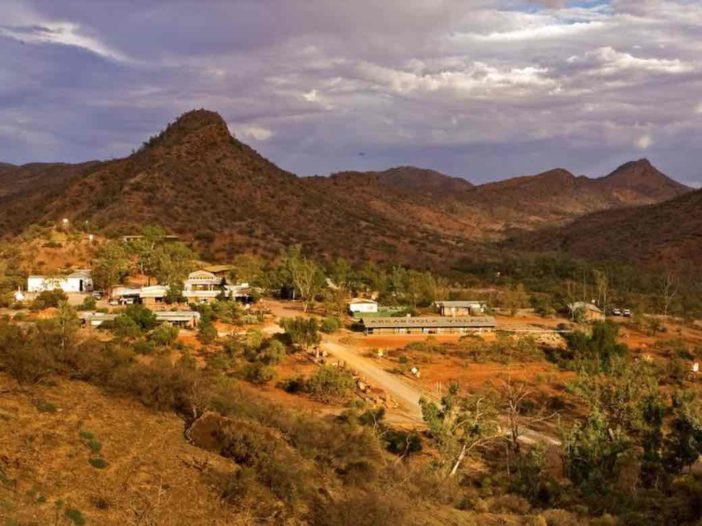
Plans to install a solar and storage-based microgrid to power an off-grid wilderness sanctuary – and World Heritage candidate – in South Australia’s Flinders Ranges have been awarded $1.3 million in federal grant funding.
The remote Arkaroola Wilderness Sanctuary, which is situated around 600km north of Adelaide, was founded in 1968 as a science and nature reserve and continues to serve as a popular destination for artists, astronomers, adventurers and geologists.
The Sanctuary, which is currently pursuing Dark Skies Accreditation – it houses three state of the art Astronomical Observatories – and is part of a World Heritage Bid for its geological features, currently relies on diesel generators and LPG gas for its energy supply.
But a bid to shift Arkaroola to clean energy, largely driven by the community-based renewable energy funding venture CORENA (Citizens Own Renewable Energy Network Australia) has moved up a gear with project partners locked in and, now, grant funding.
Corena – a not-for-profit set up in 2013 to fund renewables and energy efficiency projects using a “revolving loan” model – said this week that the $1.3 million from the Regional and Remote Communities Reliability Fund would be used to design and test options for the Arkaroola microgrid.
The project, which is being led by off-grid energy specialist, Apex Energy Australia, is expected to include solar, battery and thermal storage and smart energy management with the opportunity to investigate a range of other generation, storage, water and transport technologies.
The delivery of the project, including research, energy modelling, system simulation, equipment assembly and onsite installation, is planned to be spread over a 24 month period. Apex said this week that, along with project partners Ecotechsoft and Glaciem, it would provide the specific data outputs needed to develop an optimal renewables-based microgrid.
Apex, which is based in Adelaide, said the federal grant funding would help allow Arkaroola to trial renewable energy technologies particularly well suited to remote harsh conditions alongside the transition of its energy system to zero-emissions.
“Renewable energy technologies are the future of remote sites and communities, and ground-breaking projects like this are the key to a zero-emissions future and more resilient energy systems,” said Apex managing director Paul Stallan.
Doug Sprigg, the current owner of Arkaroola, paid tribute this week to Corena, for its “persistence, efforts and expertise” and the mostly volunteer-run organisation’s key role in accessing the grant money.
“I am blown away by what they’ve achieved for us by laying the foundations and bringing in the partners to make this bid successful,” Sprigg said in a statement this week.
As One Step Off The Grid sister site RenewEconomy has reported, Corena offers zero-interest loans to pay for community-based renewable energy and efficiency projects, or the purchase of electric vehicles, where savings on energy bills and/or fuel cover loan repayments back into a revolving fund.
As the website explains, “We then invite everyone to chip in to help fund the project. We use those new donations and recent loan repayments from earlier projects to give a loan to cover the project costs.”
To date Corena has provided over $894,000 in interest-free loans to 44 projects, which have avoided an estimated 2441MWh of grid electricity. This amount of carbon emission reduction is equivalent to 223 average households using 100% renewable energy instead of grid electricity.
“Corena is committed to reducing greenhouse emissions by supporting projects that wouldn’t happen otherwise,” said patron Monica Oliphant.
“We have been working with Arkaroola for a number of years to see how we can help the sanctuary move away from its reliance on diesel and LPG. With over 300 non-cloudy days per year it makes sense to go solar and suits the sustainability goals of the wilderness site.”

Sophie is editor of One Step Off The Grid and editor of its sister site, Renew Economy. Sophie has been writing about clean energy for more than a decade.

